When you reach the end of Baldur’s Gate 3, there are a handful of final choices you’ll need to make during the final confrontation with the Elder Brain. One of the critical choices you’ll need to make is if you plan to trust the Emperor in these final moments.
The last decision you need to make regarding the Emperor is whether you plan to give him the Netherstones or not. These were originally used against the Elder Brain before it evolved to a Nether Brain, and if you give the Netherstones to the Emperor, he’ll take Orpehus’ powers in the hopes of claiming victory. Should you provide the Emperor with the Netherstones in Baldur’s Gate 3?
What Happens When You Give the Netherstones to The Emperor in BG3?
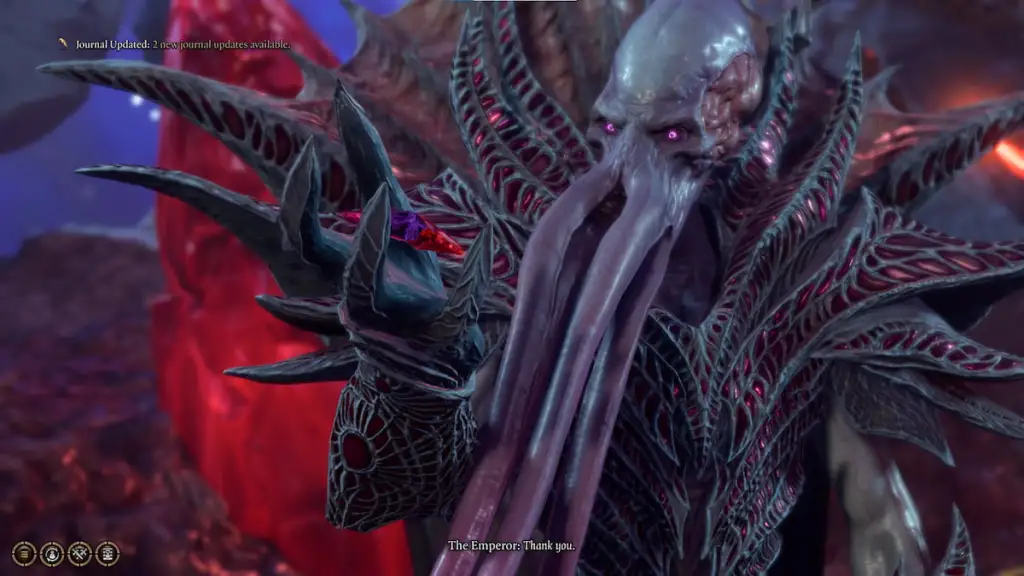
By giving the Netherstones to the Emperor at the end of Baldur’s Gate 3, you are granting him permission to consume Orpheus’ powers. In the final battle, he will lower the shield protecting Orpheus, devour his brain, and unlock his powers against the Elder Brain. Rather than having Orpheus at your side, the Emperor will work with you to fight against the Elder Brain.
Making this choice is directly against siding with the Githyanki, and you will be condemning their people to continue to be ruled by the Lich Queen, and you won’t be able to help Kith’rak Voss. In addition, you leave the decision to destroy the Elder Brain up to the Emperor for your Baldur’s Gate 3 playthrough.
When you reach the end of the game and have a chance to make a final decision with the Emperor, he will choose to destroy the Elder Brain and all the tadpoles, or you can rule with him as the new founders of the Absolutes.
You still get the same options that you would get if you decided not to work with the Emperor and instead went with Orpheus. Orpheus and the Emperor will choose to destroy the Netherbrain if you side with them, or you can also choose to betray them at the end of the game rather than work with them to save Baldur’s Gate. The choice is yours, but there are slight outcomes for you depending on who you go with, such as the Emperor being less-than-desirable than Orpheus.
What Happens When You Don’t Give the Netherstones to The Emperor in Baldur’s Gate 3?
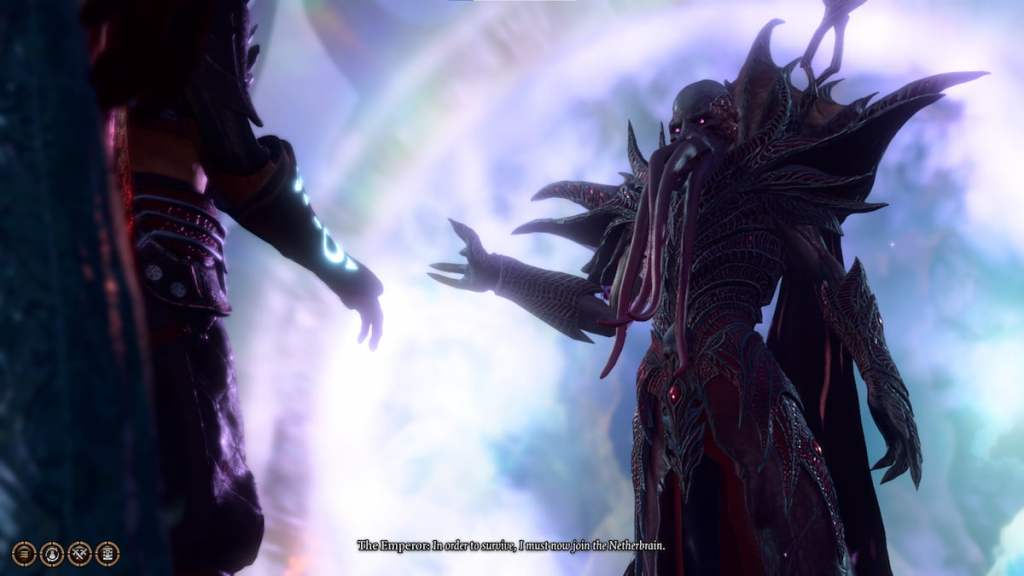
Should you decide to defy the Emperor and not allow him to have the Netherstones, he will depart from the Astral Prism. He believes your course of action is a lost cause and that he’d rather side with the Netherbrain and join the invading Illithids attacking Baldur’s Gate than side with your Baldur’s Gate 3 party.
This choice does force you and your Baldur’s Gate 3 party to decide to assist Orpheus from leaving his protective shield and fight together. You will want to have the Orphic Hammer for this moment, and you’ll then need to make another decision with Orpheus: should you or he become a Mind Flayer to protect the world? You also have the choice to make Karlach one if she’s at your party during this time, and she’ll offer to become one to save the world so she can live outside of Avernus.
By not siding with the Emperor, he will appear in the final battle to help protect the Elder Brain. This can be a difficult encounter with The Emperor assisting the Elder Brain from your Baldur’s Gate 3 party, but not unwinnable.
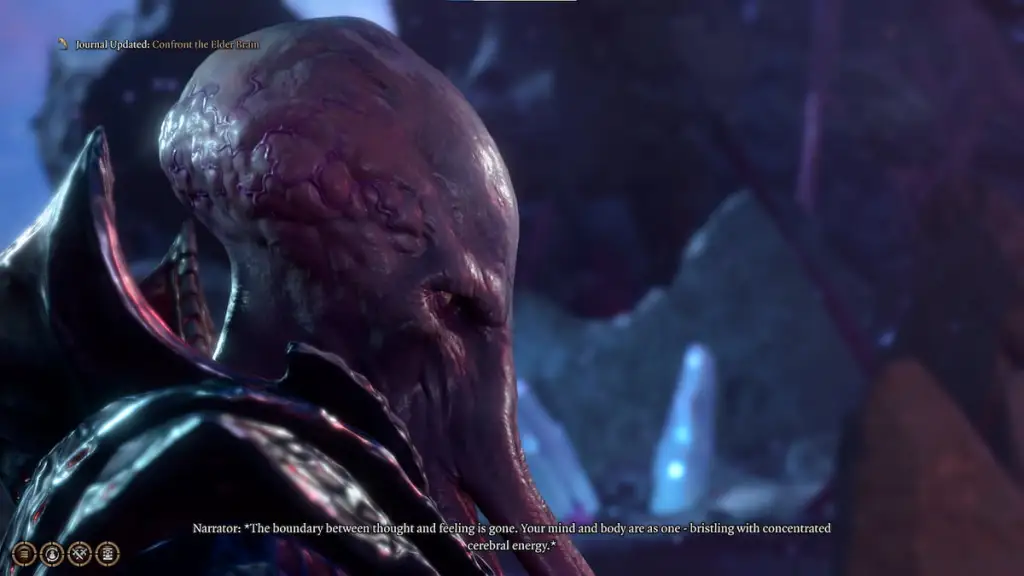
However, an alternative can be that rather than allowing the Emperor to control the stones, you can choose for your character, or even Karlach, to become an Illithid. By making this decision, your character, or Karlach, can control the Netherstones and work alongside the Emperor, but they will kill Orpheus for this to work. It’s still working with the Emperor but preventing him from getting the Netherstones.
Is It Better To Give the Netherstones to The Emperor or Work With Orpheus in Baldur’s Gate 3?
It comes down to your Baldur’s Gate 3 playthrough between the two options. For our playthrough, it made more sense to side with Orpheus, freeing him and making sure he made it to the end of the game to free his people. However, for some who have been trusting and giving themselves to the Emperor, siding with him might prove a more fruitful story.
Siding with the Emperor does condemn the Githyanki people, as they would have had a better chance to escape Vlaakath if they had Orpheus on their side. Regardless of your choice, your Baldur’s Gate 3 party does need someone to become an Illithid to control the Netherstones. The Emperor is the more obvious option if you don’t want any of your characters to undergo this transformation.
However, as we said, Karlach is all about it, given her limited options for escaping Avernus. She will be forced to return to the Hells if she does not become an Illithid in your Baldur’s Gate 3 party. There’s nothing you can do to prevent this, making it a difficult outcome if you working through a romance with her, like my character was during my playthrough.
Potential spoilers ahead
Who is the Emperor in BG3?
The Emperor, an unusual Mindflayer in Baldur’s Gate 3, claims to have escaped the domain of his Mother Brain while retaining some semblance of his humanity. The true identity of this mind flayer is revealed through Wyll’s questline. Surprisingly, the Emperor is actually Balduran, the legendary founder of the city known as Baldur’s Gate. Despite his claims, it becomes evident that he has no humanity left. After all, he is a mind flayer.
Who is Orpheus in BG3?
Orpheus, son of Gith and Prince of the Comet, is the rightful heir to Gith’s throne. He’s trapped by the Emperor and his Mind Flayer allies. Players can embark on a quest to free him, which involves obtaining the Orphic Hammer and confronting the Emperor in the Astral Plane. Success in this quest allows Orpheus to join the battle against the Netherbrain, potentially preventing others from becoming Mindflayers.


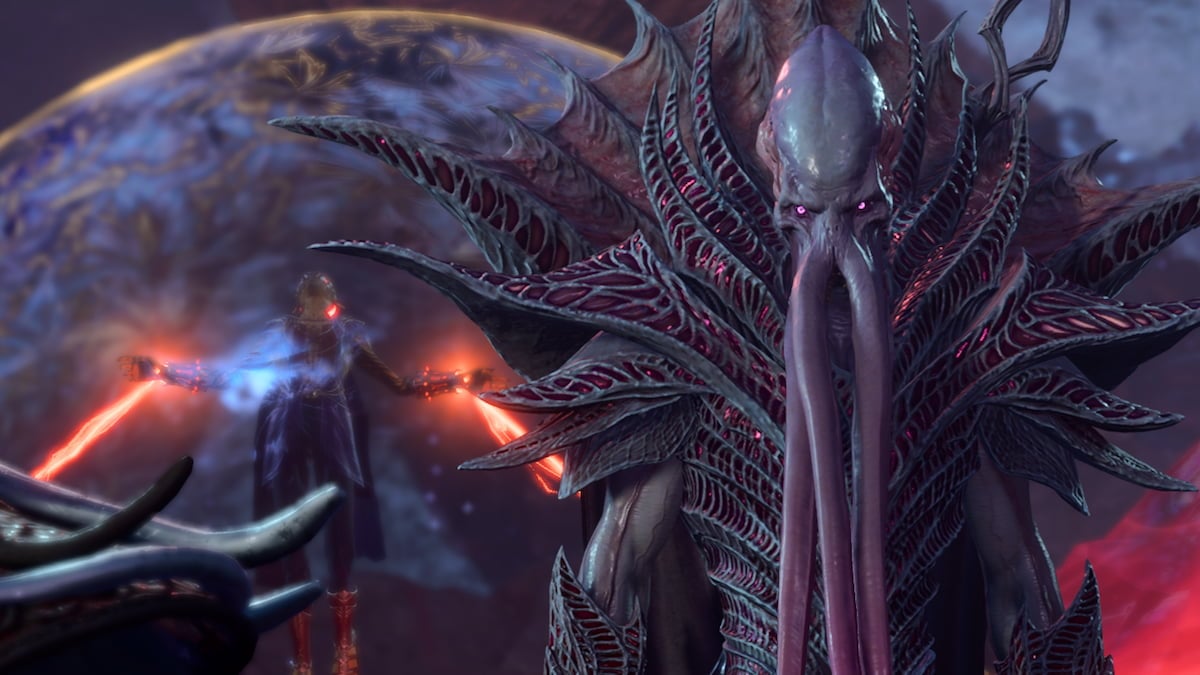




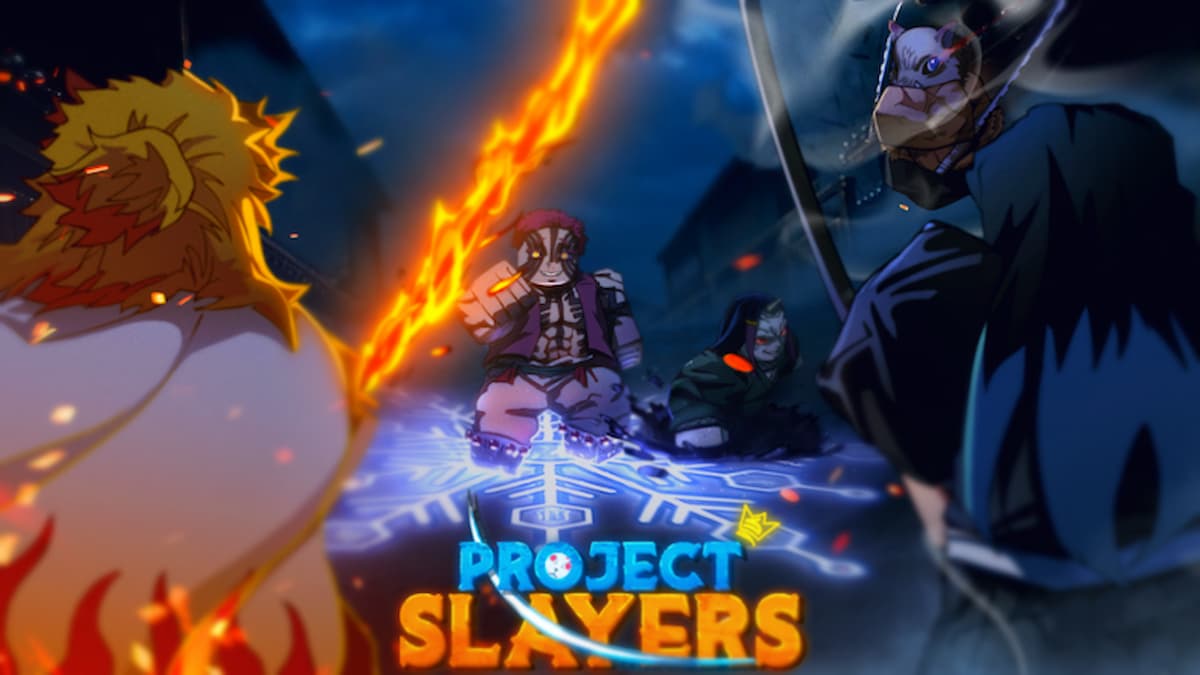
Published: Mar 25, 2024 11:09 pm